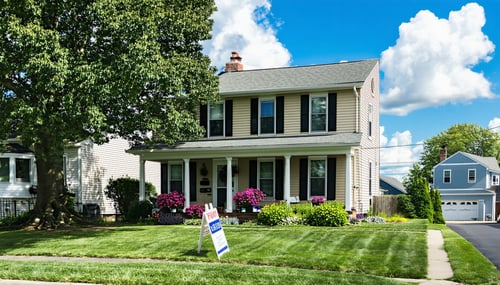A sudden increase in your DeKalb County property tax assessment can be a significant financial burden. Fortunately, property owners have the right to challenge this assessment. The DeKalb County Board of Assessors provides resources and procedures to guide homeowners through the appeal process. Understanding these resources and deadlines is essential for a successful appeal. This guide outlines key information and where to find assistance.

1. Understand Why the Increase Occurred
-
Review Your Assessment Notice: The notice (usually sent in late May or early June) provides the new assessed value and may explain the reason for the increase.
-
Check Property Characteristics: Verify the county's data (square footage, bedrooms/bathrooms, lot size, improvements). Errors can inflate your value.
-
Research Neighborhood Sales: Look for sales in the past 6–12 months of comparable homes (same size, age, features, and location) to judge if your new value is fair.
2. Gather Evidence to Support Your Challenge
-
Comparable Sales (Comps): Note addresses, sale prices, sale dates, and property details. Emphasize similarities.
-
Photos and Documentation: If your home has deferred maintenance or damage, take clear photos and get repair estimates.
-
Independent Appraisal: A recent appraisal (dated near January 1st of the tax year) from a licensed appraiser can serve as strong evidence.
-
Property Data Errors: If your records differ from the county’s, provide surveys, appraisals, or contractor statements.
-
Lack of Uniformity: Show that similar nearby homes are assessed at a lower value using public tax records.
3. File Your Appeal Within the Deadline
-
Deadline: You have 45 days from the date printed on your Annual Notice of Assessment.
-
Online Appeal: File through the DeKalb Property Appraisal online portal. You’ll need your access code from the notice.
-
Mail-In Appeal: Send a written appeal or the county’s form. Include:
-
Parcel ID (PIN)
-
Property address
-
Phone number
-
Reasons for appeal
-
Your proposed fair market value
-
Choice of appeal method (BOE, Hearing Officer, or Arbitration)
-
Supporting documents
-
-
Be sure to postmark by the 45th day or hand-deliver by the deadline.
4. Choose Your Appeal Method
-
Board of Equalization (BOE): Free hearing before trained DeKalb County residents. Most common and accessible option.
-
Hearing Officer: For non-homestead properties valued over $500,000. Decided by a certified appraiser.
-
Non-Binding Arbitration: Requires both parties to agree on a licensed appraiser. Usually used in more complex or commercial disputes.
5. Prepare for Your Hearing
-
You’ll receive notice of your hearing date and time.
-
Organize all evidence clearly. Practice stating your case.
-
Bring multiple copies of your documentation for yourself, the county, and the panel or officer.
6. Understand Temporary Value and Billing
While your appeal is pending:
-
You’ll be billed based on the lesser of:
-
The previous year’s final value, or
-
85% of the current year’s initial assessed value.
-
-
Once your case is resolved, you’ll get either:
-
A refund with interest, or
-
An additional tax bill with interest.
-
💡 Key Strategies
-
Act quickly – don’t delay once you receive your notice.
-
Use facts and data, not emotion.
-
Be specific and organized.
-
Consider professional help for complex properties or large value disputes.
📚 Resources for DeKalb County Property Tax Appeals
🔗 DeKalb County Property Appraisal Department
Phone: (404) 371-0841
Use this to search property data, file appeals, and review deadlines.
🔗 DeKalb County Tax Commissioner's Office
Phone: (404) 298-4000
Check payment details, homestead exemptions, and billing information.
🔗 Georgia Department of Revenue – Property Tax Division
Review Georgia tax law, appeal rights, and uniformity guidelines.



